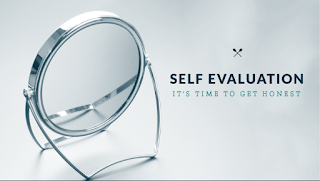Over the last number of months I've been very lucky to have an opportunity to get involved in some Coach Education. As part of this journey I've started to self reflect a lot more. It got me thinking that as coaches we regularly hear and say a lot of similar things to our athletes. Most, if not all, of us are guilty of getting frustrated and blaming our athletes "Why don't you get it?!" "If only they were smarter/more game aware..."
At times the frustration seen by this coach
may have been shared by some of us!
But ultimately who is responsible for what these athletes are learning, and as such developing the knowledge base to deal with. Our job as coaches is to work with our athletes where they are. We need to be chameleons who can change and adapt to the needs of our athletes. Our questioning and session design should be targeted towards our athletes level, not what works best for us.
Once a session ends as coaches we should take the time to reflect on our session. How did we speak to our athletes. How did they respond. What aspects of the conversation went well. What would you have done differently.
Your session design, and how it's received may end up in very different places. As coaches we should be conscious of people's understanding of tone, content and delivery style.
So, other than self reflection what can we do?
Here are a few ideas:
1. Try having someone video a session and recording yourself. Listen to what it is you're saying and how you're saying it. What you thought was a good comment at the time, would you make it again?
2. If you work with a staff, ask one of them to watch a chunk of practice and take notes. Become reflective as a group, and provide each other with feedback on your sessions.
3. Talk to your athletes. See what activities and behaviors they enjoy and don't enjoy at practice. If these activities are crucial see if you can reframe them so that your athletes understand them better. If they're not - get rid of them! Ultimately you and the athletes are a team, you expect them to listen to you, why not do the same for them.
 Over the past few months I've really applied myself to this, and it's reaping rewards. The athletes I work with are enjoying and understanding our sessions better. If a part of practice doesn't work well I find out relatively quickly and as a result our practices are becoming more efficient. The athletes are engaged and challenged and our questioning sessions are becoming more worthwhile.
Over the past few months I've really applied myself to this, and it's reaping rewards. The athletes I work with are enjoying and understanding our sessions better. If a part of practice doesn't work well I find out relatively quickly and as a result our practices are becoming more efficient. The athletes are engaged and challenged and our questioning sessions are becoming more worthwhile.At the weekend I was really lucky to have one of my athletes participate in a coaching course I was helping with. As we worked through the day I kept wondering was she seeing what we were talking about as best practices in the sessions we have together. That experience is going to give us a framework to talk about future sessions, and hopefully a part of my reflection process is going to be a really informed young coach who is an active participant in the session.
"I’m starting with the man in the mirror
I’m asking him to change his ways
And no message could have been any clearer
If you wanna make the world a better place
Take a look at yourself and then make that...
Change!"
Hello Mark.
ReplyDeleteI really enjoyed this post. I am really interested in reflection also. Parts of it reminded me of an interview with Elon Musk I watched this week. Elon talks about the importance of seeking and listening to negative feedback. I really like that you seem to be coming at these reflections and conversations with people from a place of genuine curiosity - I really think that is the key.
Thanks for sharing!
https://www.youtube.com/watch?v=L-s_3b5fRd8